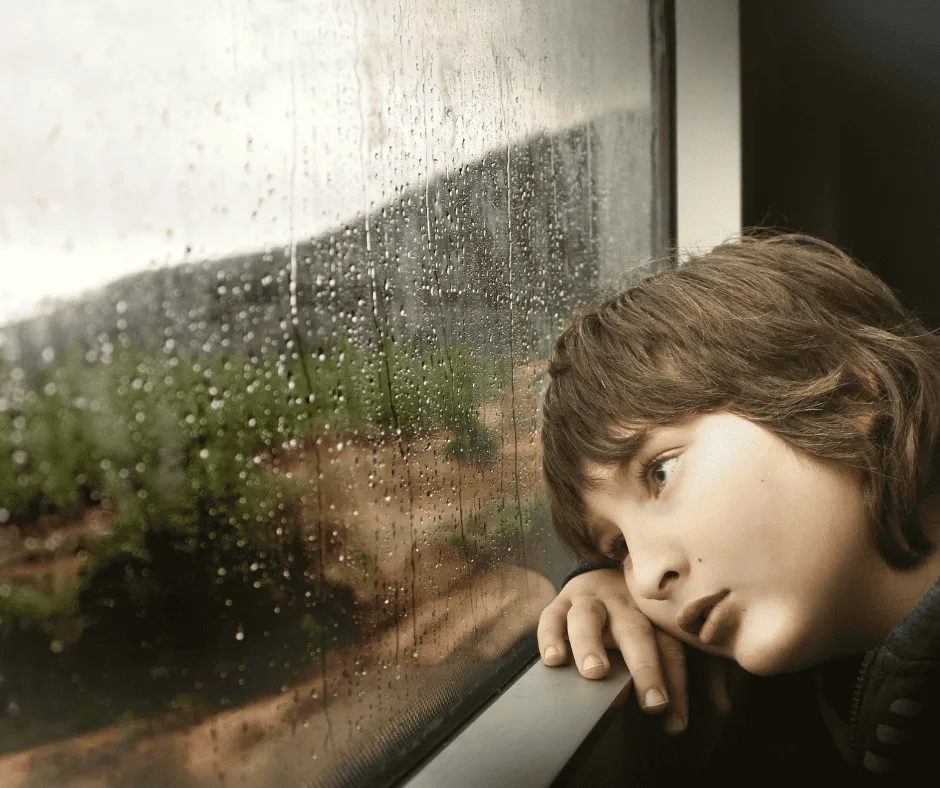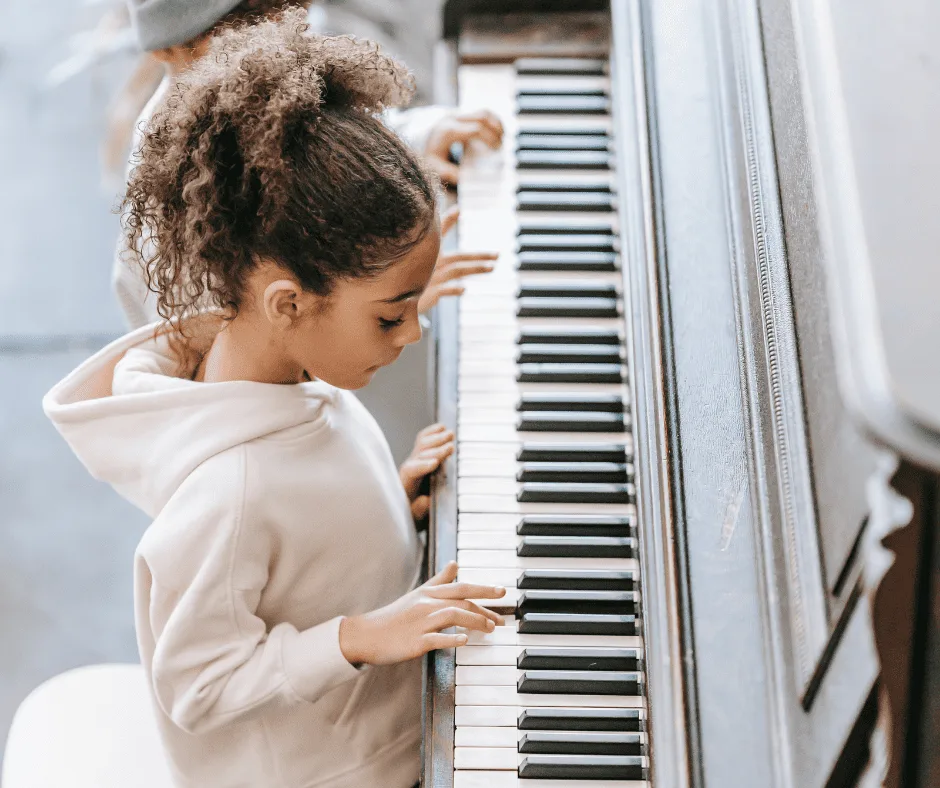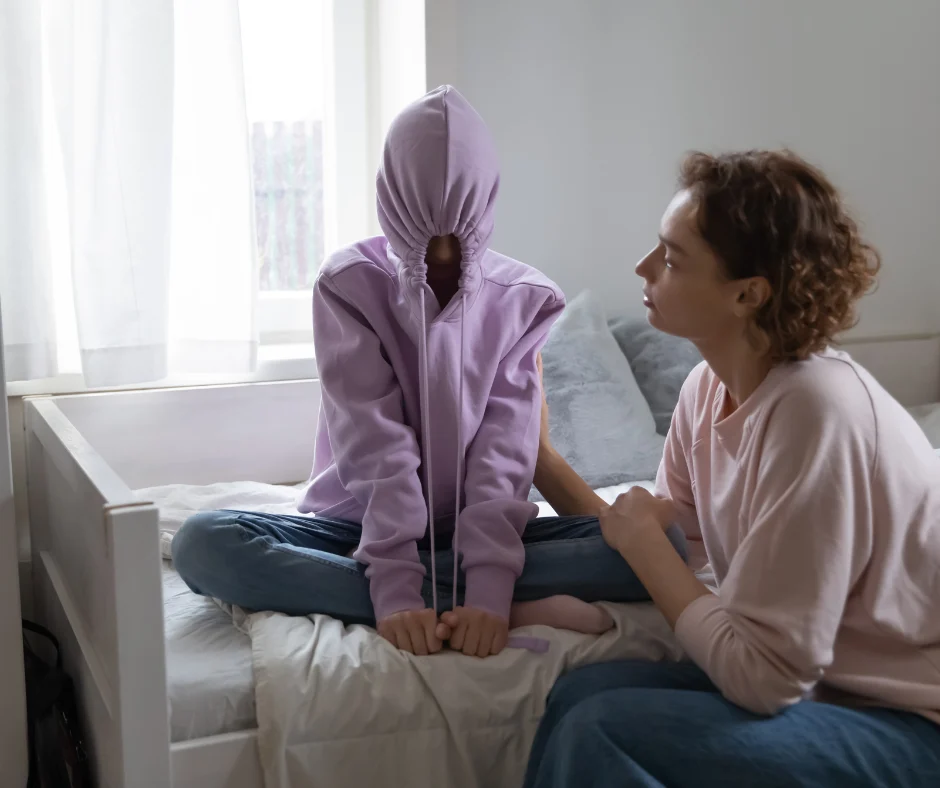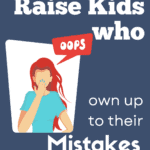Kids who own up to their mistakes and decisions – good and bad – have parents that have these mindsets.
When your kids make mistakes or poor decisions, do they own up to it or try their best to hide and avoid and blame or consequences? Most modern children and teenagers will do anything they possibly can to avoid facing their mistakes.
Take my oldest son, who uses what I like to call the “defend and deflect method” to point blame away from himself. Basically, he would have a well-thought out, organized rebuttal (such a first child, am I right?) for WHY what happened was not – in fact- his fault.
That middle child of mine acts like a busy CEO who has no time for any questions. She is annoyed to even be questioned about a poor choice she made.
And bless his soul, my youngest son just blinks those puppy dog eyes, puffs out his bottom lip, and any mistakes he makes quickly dissolve.
I realized that my children needed a tough-love lesson in owning up to their own mistakes.

Why Kids Avoid Taking Responsibility for Their Actions
When it comes to children (and even adults), there are various underlying reasons why they may try to avoid taking responsibility for their actions. Understanding these reasons can shed light on how to address this behavior effectively. So, let’s take a closer look at some of the common reasons that drive individuals to offload responsibility:
- Fear of Disapproval: One of the primary reasons children may try to shift blame elsewhere is their fear of facing disapproval or criticism. They may worry about disappointing their parents, teachers, or peers. By avoiding responsibility, they hope to escape the negative consequences that come with admitting fault.
- Preserving Self-Image: Another motivation behind offloading responsibility is the desire to maintain a positive self-image. Children, like adults, want to be perceived as good, competent, and capable individuals. Accepting fault might challenge their perception of themselves, leading them to protect their self-esteem by attributing the blame to others.
- Avoiding Consequences: Offloading responsibility can also be an attempt to dodge the consequences of one’s actions. By shifting the blame onto someone else, children hope to escape punishment or negative outcomes that may follow admitting their mistake.
- Lack of Emotional Regulation: Sometimes children struggle with managing their emotions and resort to offloading responsibility as a coping mechanism. They might feel overwhelmed by guilt, shame, or embarrassment, leading them to deflect blame rather than confront these challenging emotions.
- Need for Attention: In certain cases, children may seek attention or a sense of power through offloading responsibility. By diverting attention away from their own actions and onto someone else, they can draw focus and potentially gain a temporary sense of control.
Understanding the various reasons behind offloading responsibility allows parents the ability to know it is time to teach kids to avoid deflecting or shifting blame.

5 Ways to Raise Kids Who Own Up to Their Mistakes
As parents, there are simple things you can do to guide kids to respond with “I’m sorry. I’ll fix the problem”, instead of hiding from their choices in life.
These are 5 things parents can do to raise kids who own up to their mistakes:
1) Normalize Mistakes
First, if you want your child to be honest with you and begin to accept their own choices, they have to believe in their hearts that mistakes are acceptable.
Everyone makes mistakes. Many mistakes each day. It’s only 10am and I already made a few mistakes.
Talk through the mistakes that you make throughout your day. Be open about your misgivings and how you reacted.
Also read: Avoid Raising Narcissistic kids
2) “Stop. Start over.”
When your kid or teen approaches you with excuses, denials or arguments, get used to this simple technique.
Tell them very calmly, “Stop. Start over”.
You don’t need to hear the excuses. You love them, but the past is in the past. They simply need to apologize and move forward. This will get them in the habit of accepting when things go wrong.
You may also like: How to Fill Your Kid’s Emotional Cup
3) Walk Through Better Options
Kids who own up to their mistakes also have parents that talk openly about other ways they can handle situations.
Be your child’s coach.
This is best done in an accepting tone, not a criticizing or degrading voice.
Try this, “I see why you did that, but what do you think you can do differently next time.” Or “if that happens again, what is a better way to react?”

4) Back off a Little
Sometimes, as parents, our best way to teach kids is to back off a little and allow your children to learn from their own mistakes.
Did they forget to charge their school laptop again? Instead of interfering, allow them to go to school with a dead computer and deal with those natural consequences.
Related: 7 Signs Your Kid is Emotionally Secure
5) Unconditional Love
None of these tips will work if your child doesn’t believe in their hearts that you have unconditional love for them.
At the end of the day, we aren’t defined by our mistakes. No amount of mistakes could change the way I feel about my kids. They can tell me anything and I will help them work through any situation. It’s a judgement free zone.
And I remind them of this on a daily basis.
Must Read: How to Raise Kids that Come to You with Problems, Not Hide from You
Final Thoughts on Kids Who Own up to Their Mistakes
After working on these parenting changes, I noticed it reflecting on my kids.
My daughter came home from school and told me, “I missed 2 on my math test. Next time I need to study harder.” There was no usual defense about the questions being unfair or the teacher not preparing them.
She was a little thrown off when I just wrapped my arms around her and told her I was proud of her.
For more tips on raising kids who are healthy at home and strong in the world, follow us on Facebook.

